The following words are from the pen of our friend, Kim Lee. I hope you find comfort in these words, as I did.
I had the privilege of hearing the Reverend Syngman Rhee speak at Covenant Presbyterian Church, years ago. He was a remarkable man. Born in Pyongyang in 1931, he fled his homeland as a refugee when the Korean War broke out; made his way to America; earned his Bachelor of Arts degree in West Virginia, his Master of Arts in Divinity in Kentucky, and then his Master of Sacred Theology in Connecticut; marched with Dr. Martin Luther King, Jr.; and trekked all over the globe working for peace and reconciliation. I remember somewhere along in his remarks he talked about having a consistent feeling of dislocation. One hardly has to wonder why. But he noted that he soon discovered that no matter where he was in the world, no matter the language barriers, strange foods, manner of dress and customs, when he stepped inside a church he felt at home. Home: it has a nice ring to it, a feeling of belonging and well-being, of being known and knowing, a place of rest and re-creation.
In the book of Exodus, we meet another man of dislocation. His name is Moses. Born a Hebrew in Egypt, he escapes Pharaoh’s death decree after his mother sends him floating down the Nile in what the Bible describes as an Ark. He is raised by none other than Pharaoh’s own daughter and in Pharaoh’s own palace nonetheless; kills an Egyptian taskmaster; flees to the land of Midian where he settles; meets and marries a local named Zipporah and goes to work for her father; leads his father-in-law’s flock out beyond the wilderness, one day; and comes to Horeb, the Mountain of God. And there, beyond the wilderness, at the Mountain of God, an angel of the LORD appears to him in a flame of fire out of a bush, the bush is blazing, and yet not consumed. Hmmm. Curious, he thinks. And so, he stops and stares and wonders; and in so doing captures God’s attention who calls, “Moses! Moses!”
God instructs Moses to remove the sandals from his feet. The gesture is an ancient practice when entering a holy place of divine presence. It is a gesture that honors the holiness of this ground, this mountain and this God. Removing shoes as a show of reverence is a practice still in use in Islam and other religions.
However, removing one’s sandals in antiquity was also a sign of being at home….(explain that it was a sign of being at home. A short sentence) So, taking off his sandals has a second significance in light of Moses’ earlier self-declaration in Exodus 2:22: ‘I have been an alien residing in a foreign land.’ The Hebrews had rejected Moses as one of their own (Exodus 2:14). The Egyptian Pharaoh sought to kill him (Exodus 2:15). The Midianites see Moses as a foreigner, ‘an Egyptian’ (Exodus 2:19). Moses is not fully ‘home’ in any human community. Taking off one’s sandals is a gesture in many traditional cultures that is associated with entering not only a worship space but also a home. Thus, here at the foot of the mountain of God, Moses the ‘alien,’ has at last found a true ‘home.’ Moses finds his true home not with humans but with God, the God of his ancestors, ‘the God of Abraham…of Isaac…of Jacob’ (Exodus 3:6). —Dennis Olson, Professor of Old Testament Theology, Princeton Theological Seminary
I wonder how many folks walked by that burning bush. I wonder how many burning bushes we walk by today.
Earth’s crammed with heaven,
And every common bush afire with God,
But only he who sees takes off his shoes;
The rest sit round and pluck blackberries. —Elizabeth Barrett Browning
Stop. Stare. Wonder.
God is calling us home.
All are welcome.
Take your shoes off.
Come on in.
Sit a spell.
Wherever you may wander;
wherever you may roam,
God is there.
You are home.
